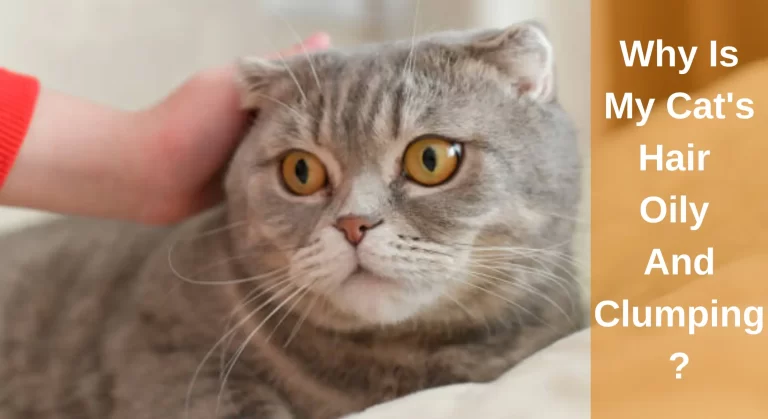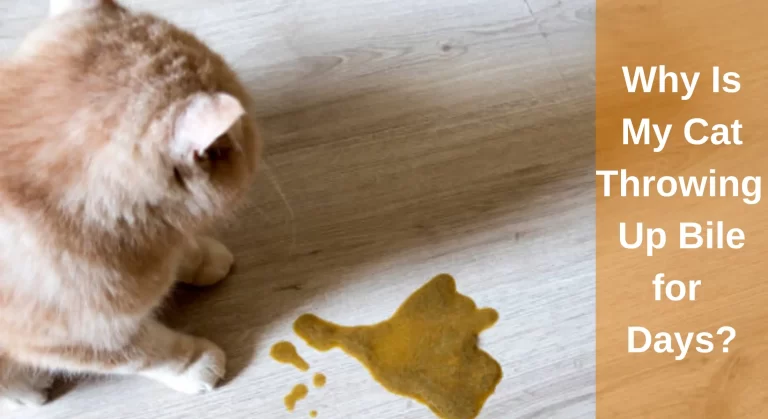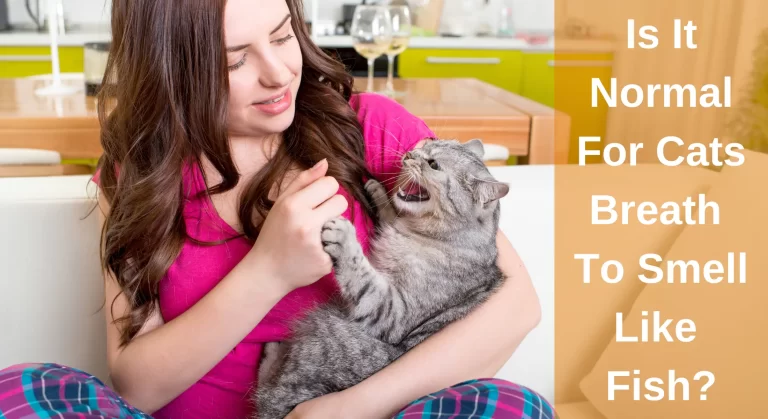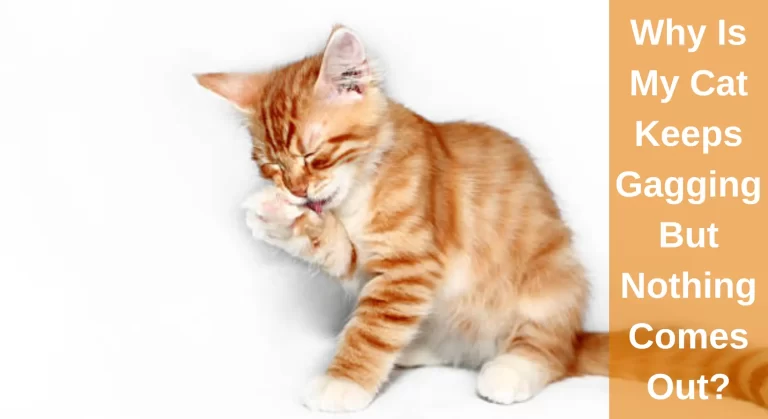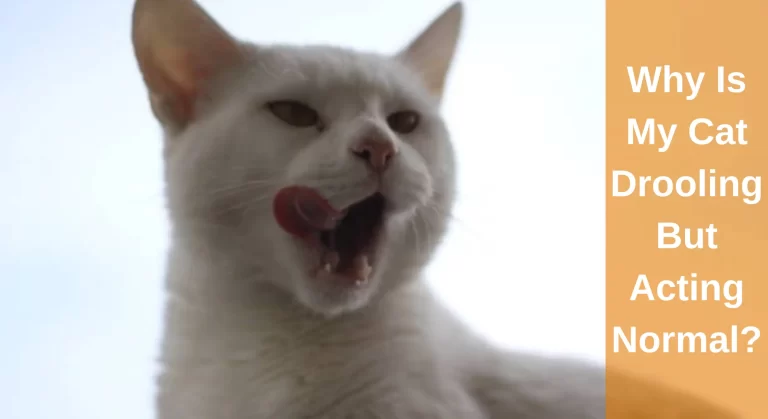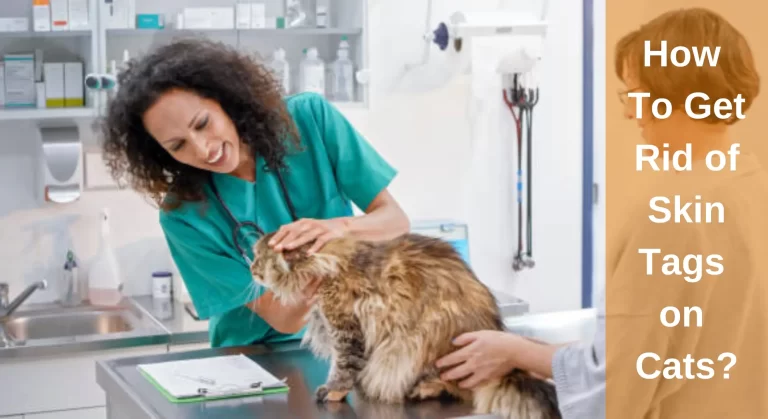Kitten Sleeping All Day After Vaccination – Is It Normal?
It isn’t possible to overstate how crucial immunizations are to your cat’s well-being and long-term survival. Both scientific and clinical research supports the prevention of paralyzing and deadly cat diseases by vaccinations. Veterinarians inform the public about the value of cat immunizations. Moreover, they’ll also tell you which cat vaccines are required and at which time you should provide them.
But most cat owners complain that their kitten sleeping all day after vaccination. What’s the reason behind it?
Vaccinated cats may appear a little tired after getting their shots. The vaccine’s ingredients stimulate the immune response, and this activity can be exhausting. After vaccines, most kittens/cats become sleepy, and their appetite probably decreases. Any serious reaction rarely occurs, but you should immediately call your vet if it does.
Most of you might be thinking about how long kitten sleep after their vaccinations or how these vaccinations work to protect their kittens. Don’t worry; in this post, I’ve mentioned a detailed review of cats’ behaviour after getting vaccinations and the effect of vaccines on them. Continue reading this post to learn more about your cat’s health:
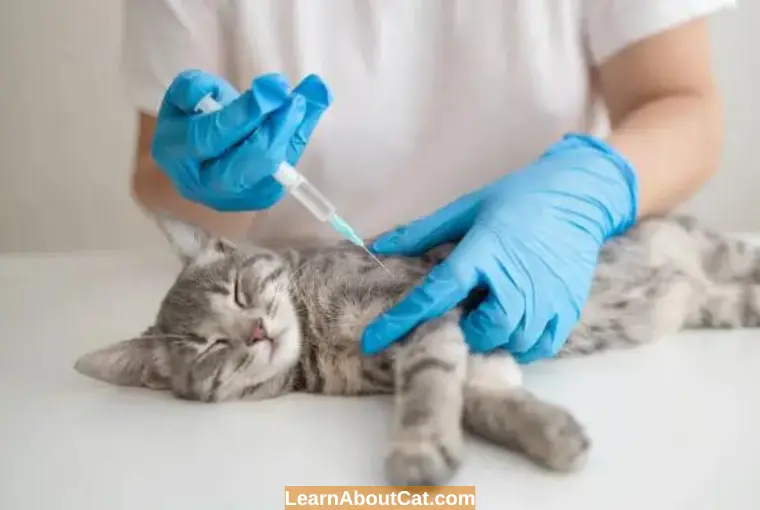
How Do Kitten Vaccinations Work?
Vaccines effectively stimulate the immune system of your cat to identify and combat a specific microbe, like viruses, microbes, or other pathogens. Thus, after vaccination, cats’ immune system is prepared to respond against viral attack caused by any bacterium. In addition, a vaccine modifies the actual disease to strengthen the body’s immunity in the long run.
A vaccine may protect your kittens’ bodies against disease, but it can’t stop microbes from entering the body. Because of the vaccine, a cat rarely gets the disease, but still, it can transmit the invasive bacteria to other kittens. This transmission isn’t common in domestic cats but can be seen in breeding cats.
Also Read: Best Flea Treatment for Kittens Under 12 Weeks
Do Kittens Feel Unwell After Vaccination? Kitten Tired After Vaccine
Immunizations are crucial to defending your pet against dangerous and infectious illnesses that may endanger its safety and health. The advantages of immunizing your cat decrease the chance of your pet getting any negative consequences. However, occasionally, some pets do experience side effects.
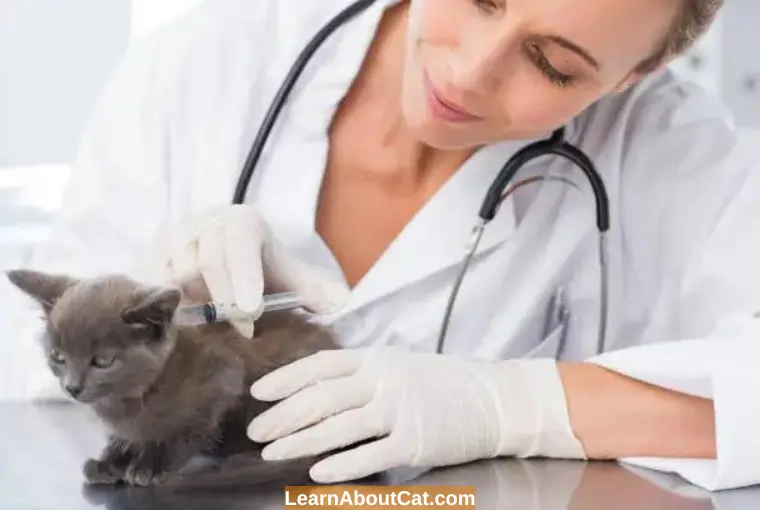
After immunization, your cat may suffer some or moderate side effects that commence shortly just after vaccination. You must call your veterinarian if you observe these effects persist for more days, which may discomfort your cat.
What Are The Side Effects Cat-Kitten Vaccination?
Most people are curious about their vaccinated feline friends and frequently ask how they will be kittens after being vaccinated. For those here, I’ve enlisted some mild and severe side effects that make your kitten sleep after their vaccinations, and in some cases, they might get unwell:
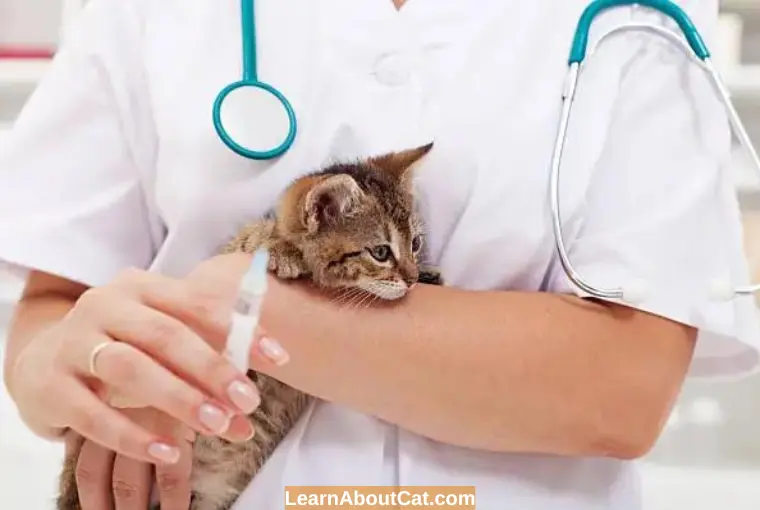
Minor Side Effects
The major adverse reactions that cats experience after having vaccines are transient and typically moderate, making them less harmful than the disease’s effects. List of some common adverse reactions that your cat may have after being vaccinated:
- Lethargy and Minimal Fever: The most typical vaccine-related adverse effects in cats are sleepiness, lethargy, a very little temperature, and minor distress. You can easily identify it by acting differently from how they usually do. This is the most common response to immunizations and produces minor symptoms that pass quickly—perhaps 2 or 3 days.
- Regional Swelling: Your cat may also experience lumps and pimples in different regions of its body. A little, solid bump may appear at the site where the vaccine needle entered the skin. It is common to occur, but you must check that particular region continuously. If the lump grows or shows symptoms of infection, redness, hurting, or bleeding, or it doesn’t disappear in a week, then you must call your veterinarian.
- Cold and Sneezing: Although injections are the preferred method of vaccination for cats, some vaccinations can also be delivered through droplets or mists into the eyes or nostrils. Nasal spray vaccination symptoms include flu, congestion, and sniffing that closely resemble a fever. These symptoms will disappear within 2 days. But if your cat’s condition worsens or doesn’t improve in a few days, then you must call your doctor.
Major Side Effects
After getting vaccinations, most side effects in kittens and cats are transient and moderate. But in a few situations, more serious responses may happen and requires quick medical help.
- After receiving the vaccine, severe illness signs may show up quite soon, but in some cases, they’ll take as long as 48 hours to appear. Cat immunizations can cause more serious adverse effects, such as respiratory problems, face oedema, nausea, rashes, itching, and diarrhoea.
- Serious anaphylaxis reactions can also occur after your cat is vaccinated. However, it’s vital to remember that anaphylaxis might show within 48 hours after immunization.
How to Make My Cat Feel Better After Vaccination?
We’re much aware of how much vaccinations are important in preventing major illnesses in cats. Luckily, most cats don’t require further care after immunization because they don’t show any symptoms. However, some cats become ill and need lots of care. The best ways to care for cats if they exhibit slight symptoms are listed below:
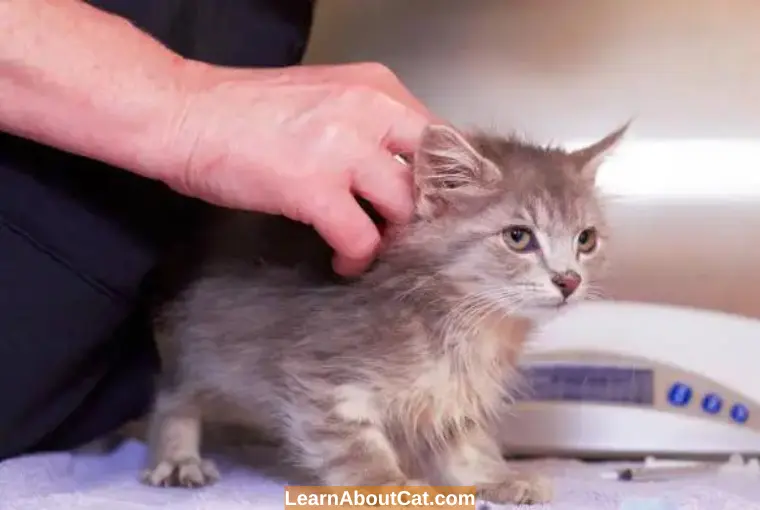
- Place your cat in a warm, comfortable spot for sleeping or taking rest. But if she wants to relax elsewhere, don’t worry; let her go.
- Must provide them with enough water or preferred food, but if they aren’t hungry, then don’t force them.
- Leave them alone, and don’t force them to purr your cat because they may prefer to be alone. So, if your cat wants your attention, it’ll cuddle you.
- Keep an eye on your cat to ensure they’re comfy, but don’t disturb them too much.
- The crucial point to keep in mind is that such a response is normal and nothing to worry about. By keeping in mind, the above advice, your cat will be normal after some time.
Types of Vaccines for Your Cats-Kittens
Core vaccines
AAFP currently advises the following essential vaccinations for all puppies and cats:
- The feline panleukopenia vaccine prevents your cat from developing the FPL virus or cat parvovirus, which may cause cats’ contagious enteritis or other distemper diseases.
- Vaccine against FVR virus that causes cat’s viral rhinotracheitis or herpes type 1 disease.
- A vaccine that protects your cats against calicivirus infections which cause caliciviral illness in your cats.
- Vaccine against the rabies virus.
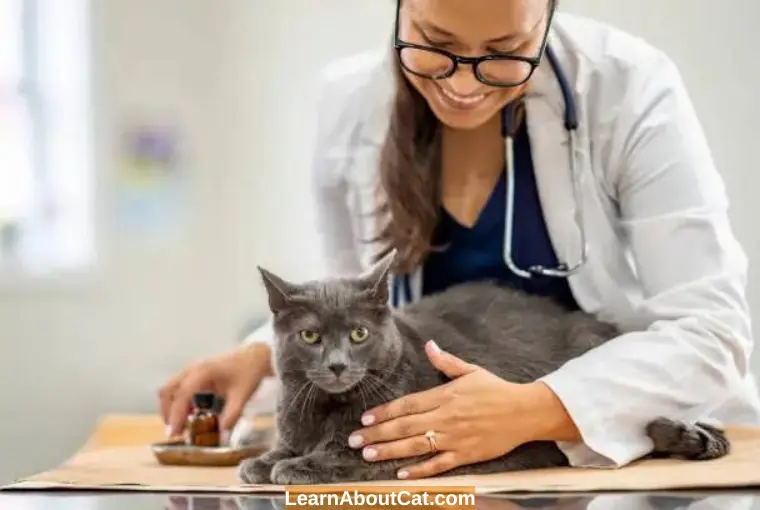
Non-Core Vaccines
The AAFP advises the following non-core that are known as additional vaccinations for kittens/cats if they get the following particular diseases:
- Chlamydiosis in cats.
- Cats’ leukaemia disease
- Coronavirus in cats caused by FIP virus (Feline Infectious Peritonitis).
- Bordetellosis
Some vaccines aren’t advised by the AAFP but can be used under specific circumstances:
- Giardiasis disease which occurs due to parasitic protozoan
- Ringworm
When Should I Vaccinate My Kitten?
Major immunizations must be done to your cats when they’re little. Go to the veterinarian, which will help you create a schedule of shots. When they’re grown up, they’ll get the important core infection vaccines; these vaccines will prevent them. Moreover, your cats also need boosters as they grow bigger until they become adults.
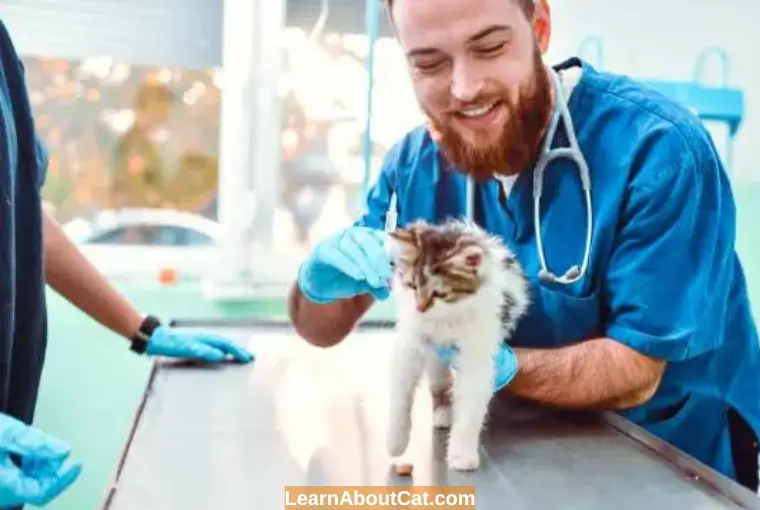
When your kitten is 8 weeks old, they’ll require 2 shots that are given at intervals of 3 to 4 weeks. Also, depending on your cat’s risk profile, the vaccination time can vary. It is advised to schedule booster shots regularly when your cat has finished their entire course of vaccines to guarantee lasting protection.
Do Indoor Cats Need Vaccinations?
While domestic cats don’t wander outside and spend most of their time inside your home, there are fewer chances that they’ll come into contact with some serious diseases. But, visiting cats or other animals easily brings diseases with them. That’s why it’s essential that your indoor cats may also get vaccinated against all diseases. So they’ll never catch any disease from other animals or cats visiting your home.
Find Out: Why Does My Cat Keep Moving Her Kittens?
Frequently Asked Question
Do cat vaccinations guarantee protection?
However, vaccines can’t fully reduce the risk of infection in case of your cat gets into contact with a virus or disease for a prolonged period. In that case, vaccines work to make disease or infection milder or less contagious in your cat so that it may not spread to other kittens or animals.
Do cat vaccinations offer immediate protection?
Vaccines don’t work immediately and may work effectively after a slight delay. That’s why it’s advised to get your cat’s vaccinated in advance if you’re taking them abroad or on a trip. In that case, if they get sick or any other severe symptoms occur, you can immediately consult your vet and take precautions.
Conclusion
Vaccinations are crucial for maintaining the health and well-being of your cat. A major adverse response in your cats after getting a vaccine is extremely unlikely. Tell your veterinarian if your pet has experienced a severe reaction after vaccination. Your veterinarian may advise you to skip any particular shot in the future.
Moreover, suppose several vaccines are injected simultaneously into your kitten. In that case, the chance of severe effects from the shots increases, so it is advised that you must give a gap in your kitten’s vaccinations.
One approach to ensure your cat’s safety is to keep them inside your home or cage. Moreover, making a boundary for your cats outside where they can freely play, relax, and sleep while staying safe from stray cats or other animals will help you to protect your cat/kitten from virulent diseases.
Who is Isabella?
My name is Isabella, and I am a dedicated and knowledgeable cat enthusiast. With years of experience caring for cats and a deep love for felines, I made a mission to help other cat lovers navigate the challenges of cat ownership.

